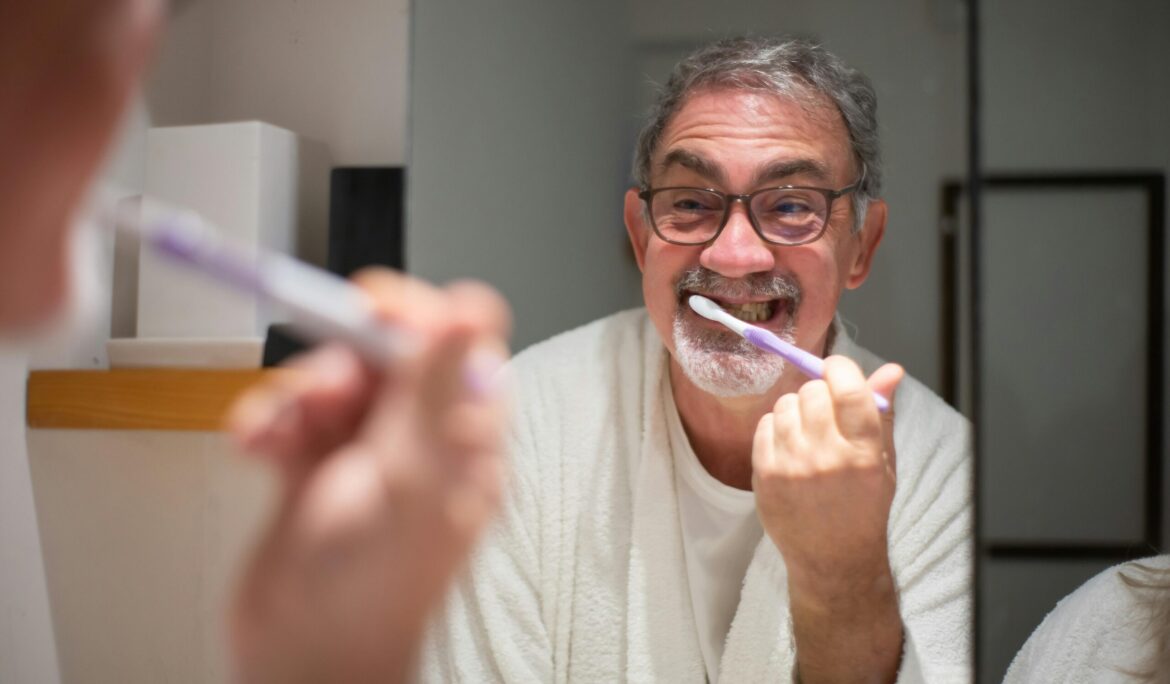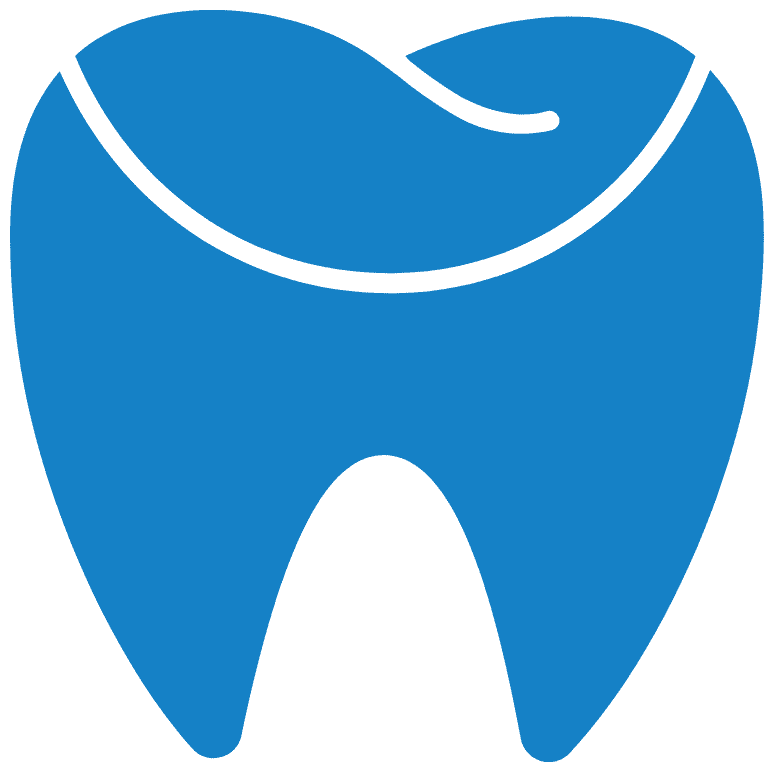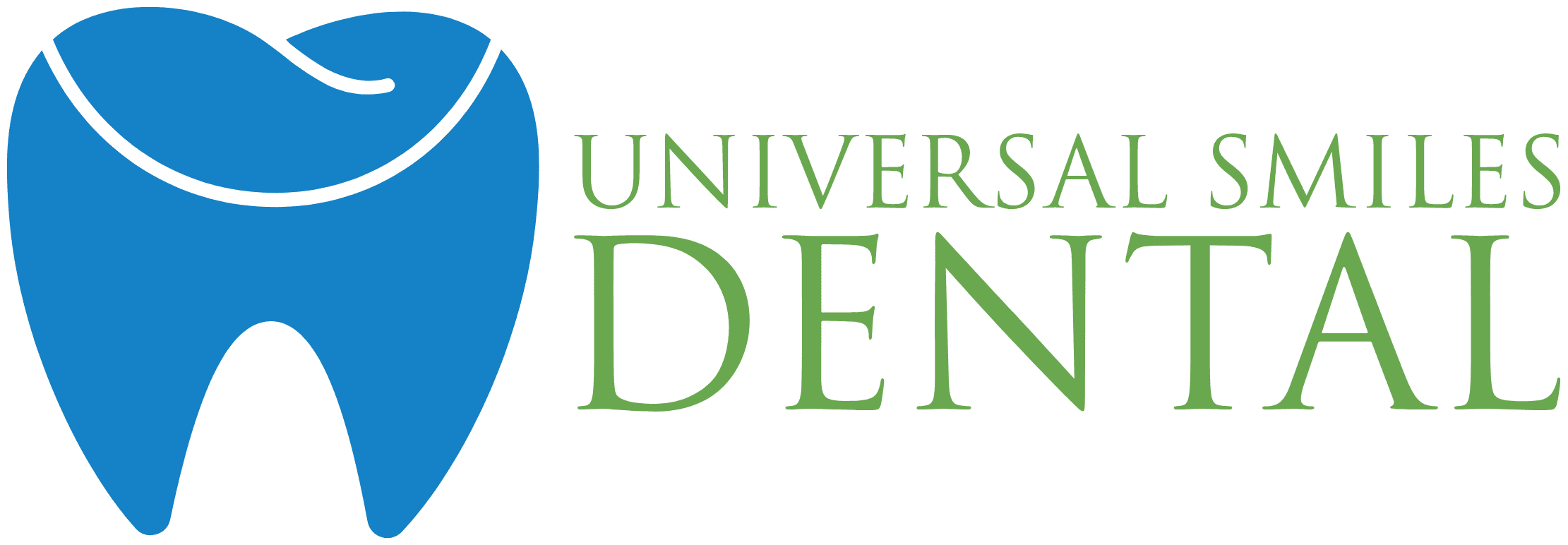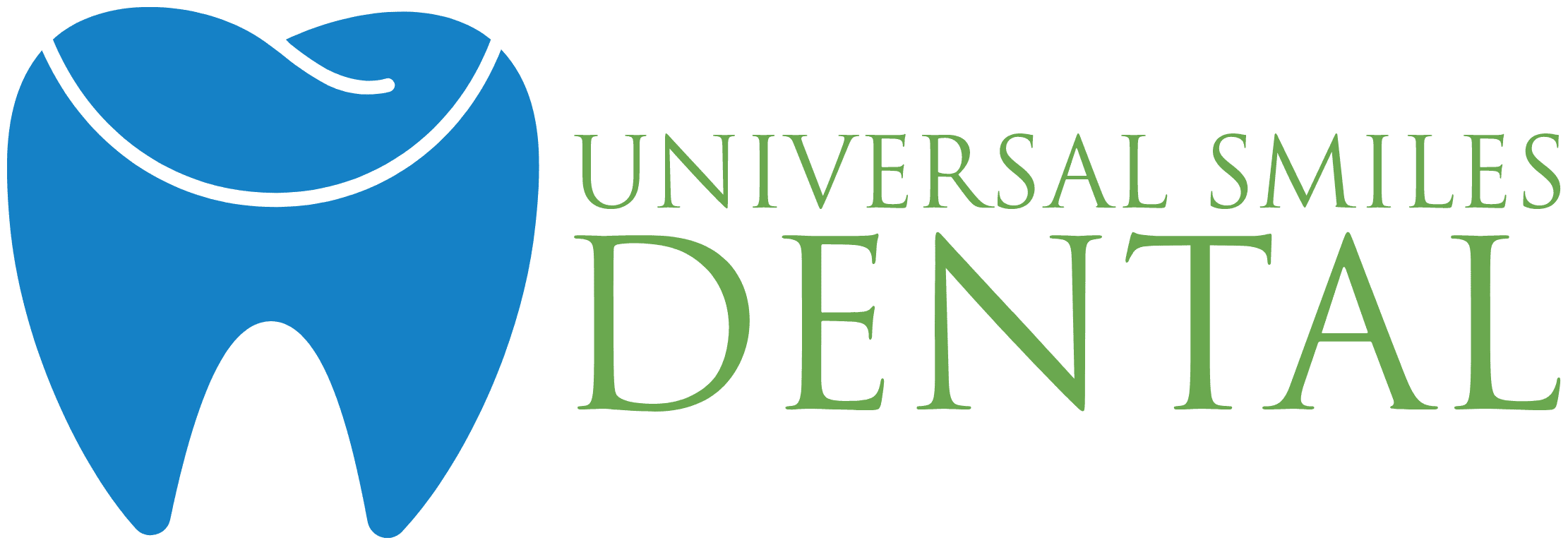Brushing vs. Flossing: What Matters More for Your Dental Health?

When we talk about maintaining a healthy smile, one common point usually arises, that is, brushing vs. flossing. Many people can’t decide if brushing twice a day is enough or if flossing should be given equal importance. Therefore, at Universal Smiles Dental, we emphasize that both brushing and flossing play a necessary part in protecting your oral health. Moreover, while brushing cleans the visible surfaces of your teeth, flossing removes food particles and plaque from the spaces between them. This includes areas that your toothbrush simply cannot reach. So if you want to get long term oral health, it is important to understand how they work together.
Brushing vs. Flossing: Why Both Matter Equally
In the discussion of brushing vs. flossing, it is important to know that these practices work with each other. Moreover, brushing is effective in removing plaque and bacteria from the outer surfaces of your teeth and tongue, preventing cavities, gum disease, and bad breath. However, brushing alone cannot clean the small spaces between your teeth or just below the gum line. Therefore, this is where flossing comes in. Flossing helps remove plaque buildup in areas your toothbrush cannot reach, decreasing the risk of gum disease and tooth decay. Together brushing and flossing offer complete oral hygiene, ensuring that your teeth and gums stay healthy.
Brushing twice a day is the very basic foundation of oral hygiene. Moreover, this is true as it removes food particles, bacteria, and plaque from the surfaces of your teeth and tongue. Furthermore, regular brushing not only keeps your smile vibrant but also stops you from having issues like tooth decay, gum inflammation, and halitosis also known as bad breath. Using a fluoride toothpaste is highly recommended by dentists because it strengthens your enamel and protects against cavities.
Additionally, for patients looking for professional care, our experienced dentist in Mill Park can guide you on proper brushing techniques. At Universal Smiles Dental, our team will also recommend the right products, and offer follow up checks to ensure your habits are effective.
Brushing vs. Flossing: Common Mistakes
Even though brushing and flossing are part of daily routine, small mistakes usually decrease their effectiveness and long term benefits. Moreover, many people think they are doing enough for their oral hygiene. However the reality is that incorrect habits will compromise results. Brushing too hard is a common mistake that gradually erodes protective enamel and irritates delicate gum tissues. Therefore, leaving teeth more sensitive to hot or cold as well as tooth decay.
Furthermore, another common mistake is not brushing long enough. This means that anything less than two minutes is usually insufficient to clean all tooth surfaces properly. Using an old or hard bristled toothbrush can also cause unnecessary wear on both teeth and gums.
Alternatively, flossing mistakes are equally a problem. Using floss too harshly into the gums can cause irritation and even small injuries, which may stop people from continuing it. Moreover, another overlooked error is failing to use a clean section of floss for each tooth, which simply spreads plaque around instead of clearing it. Furthermore, flossing irregularly instead of daily greatly increases the risk of gum disease and tartar buildup. Therefore, correcting these habits just takes awareness and consistency.
The Correct Way to Brush and Floss
Remember, brushing should be done at a 45 degree angle to the gums using gentle, circular motions. Additionally, clean all tooth surfaces, the tongue, and the roof of the mouth. Also change your toothbrush every 3 to 4 months. Flossing on the other hand requires about 18 inches of floss wrapped around your fingers, with 2 inches for working space. The floss should gently slide between your teeth, curving into a C shape and getting under the gum line. Using a fresh section each time ensures proper cleaning. At Universal Smiles Dental, our team helps patients with these important ways. So if you are getting professional support, our dentist in Mernda ensures your daily habits are right.
Conclusion
The long standing discussion on brushing vs. flossing doesn’t have a simple answer. This is true since both are equally important for a proper oral hygiene routine. Moreover, brushing is important for cleaning visible surfaces, while flossing takes care of the tight spaces between your teeth and gums. Ignoring either step affects your oral health, as the bacteria left can cause gum inflammation, cavities, and bad breath. Furthermore, the most important factor is consistency which means ensuring you do both every single day.
Alternatively, daily brushing and flossing together significantly decrease your risk of periodontal disease, tooth decay, and even systemic health problems linked to poor oral hygiene. Along with this, at home care, regular dental checkups play a necessary role. Therefore, consult our dentist in Wallan to check for early warning signs of cavities, gum issues, or infections that may go unnoticed without expert help. At Universal Smiles Dental, we take a preventive approach. One that combines the latest dental care with personalized education, helping every patient achieve a strong, healthy smile for overall wellness. Therefore, for the best results, we recommend brushing at least twice daily, flossing once a day, and visiting us every six months for preventive checkups. Remember, your smile deserves the best and complete care.


